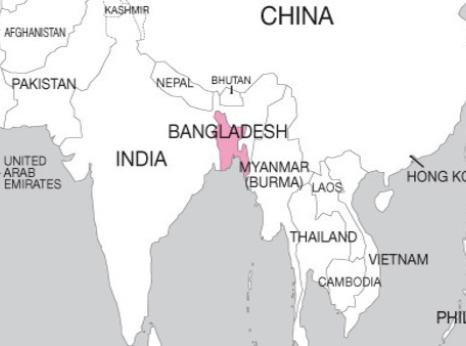Bangladesh: Journalist Arrested For Covering Cost Of Living

Shamsuzzaman Shams is a journalist working for the Prothom Alo newspaper in Bangladesh who was picked up at around 4 AM on 29 March 2023, from his residence in Ambagan, Savar, in Dhaka, the capital of Bangladesh, by a group of people in civil clothes, who identified themselves as the Criminal Investigations Department (CID). Initially, the local police and the CID’s Dhaka division denied any knowledge of his whereabouts. He was produced before court on 30 March, but his bail was denied and he was sent to jail.
Prothom Alo newspaper carried an article with eyewitness accounts that stated a group of around 15 people arrived at Shams's house in three vehicles at around 4 am. Some of them entered the house, while others stood outside, and searched Shams’s room and seized his laptop, two mobile phones and portable hard disk, and left with Shams in their custody. Around half an hour later, they returned with Shams to his house, made a list of items they seized, took photos of Shams standing in the room, and asked him to pack some clothes before leaving. Eyewitnesses believed a police officer to be amongst the group in plainclothes.
The article written by Shams on Bangladesh Independence Day, March 26 2023, focused on the rising cost of living, titled ‘We want independence of fish, meat and rice’, pointing to the rising prices of essential commodities in Bangladesh. In Prothom Alo’s Facebook page, a photo of a child holding flowers was published with a quote underneath it which was attributed to a labourer who was quoted interviewed in the article saying, “What will I do with the independence if I don’t have rice to eat? Going to the market causes me to break a sweat. We need independence of fish, meat and rice.” Acknowledging the photo had been used incorrectly alongside the labourer’s quote, Prothom Alo removed the post from its Facebook page within 17 minutes of its publication, removed the photo of the boy from its online report and issued a clarification.
In addition to Shams, a group of unnamed people including a photographer have been charged and the editor of Prothom Alo, Matiur Rahman, is also being sued under the Digital Security Act, named as the main accused in Shams’s case. Since the law was introduced in 2018, the authorities have used it to suppress online dissent, and curtail freedom of expression in online spaces.
The UN Human Rights Committee has stated that the right to freedom of expression protects the expression of every form of idea and opinion including political discourse, commentary on public affairs and discussion of human rights under the International Covenant on Civil and Political Rights, to which Bangladesh is a state party. The UN Special Rapporteurs on freedom of expression and on the situation of human rights defenders have said that the sections in the Digital Security Act, including those used against Shamsuzzaman Shams, criminalize large categories of expression in vague and broad terms. They said that the Digital Security Act affords Bangladesh’s “Government broad discretion to unduly penalize individuals for holding or sharing personal opinions, creating a chilling effect on the exercise of the right to freedom of expression.” Individuals have been subjected to a wide range of human rights violations including enforced disappearance, arbitrary detention and torture, simply for criticising powerful people or the government on social media.
Despite Bangladesh’s international commitment to protect the right to freedom of expression, journalists are being punished for their work, and as reported, according to the Center for Governance Studies, a total of 138 cases were filed against journalists under the DSA between January 2019 and August 2022, in which a total of 280 people were accused and 84 were arrested.
The Digital Security Act is a law consisting of vague and overbroad provisions that are increasingly being used to target people from all walks of life solely for expressing dissent and exercising their right to freedom of expression online. In February 2021, Mushtaq Ahmed, a Bangladeshi writer died in prison after languishing there for 10 months in pretrial detention for criticizing on Facebook the Bangladeshi government’s response to the Covid-19 pandemic. Recently, a government employee, Sultana Jasmine, accused under the DSA, died in the custody of Rapid Action Battalion-5 after suffering bleeding in her brain.